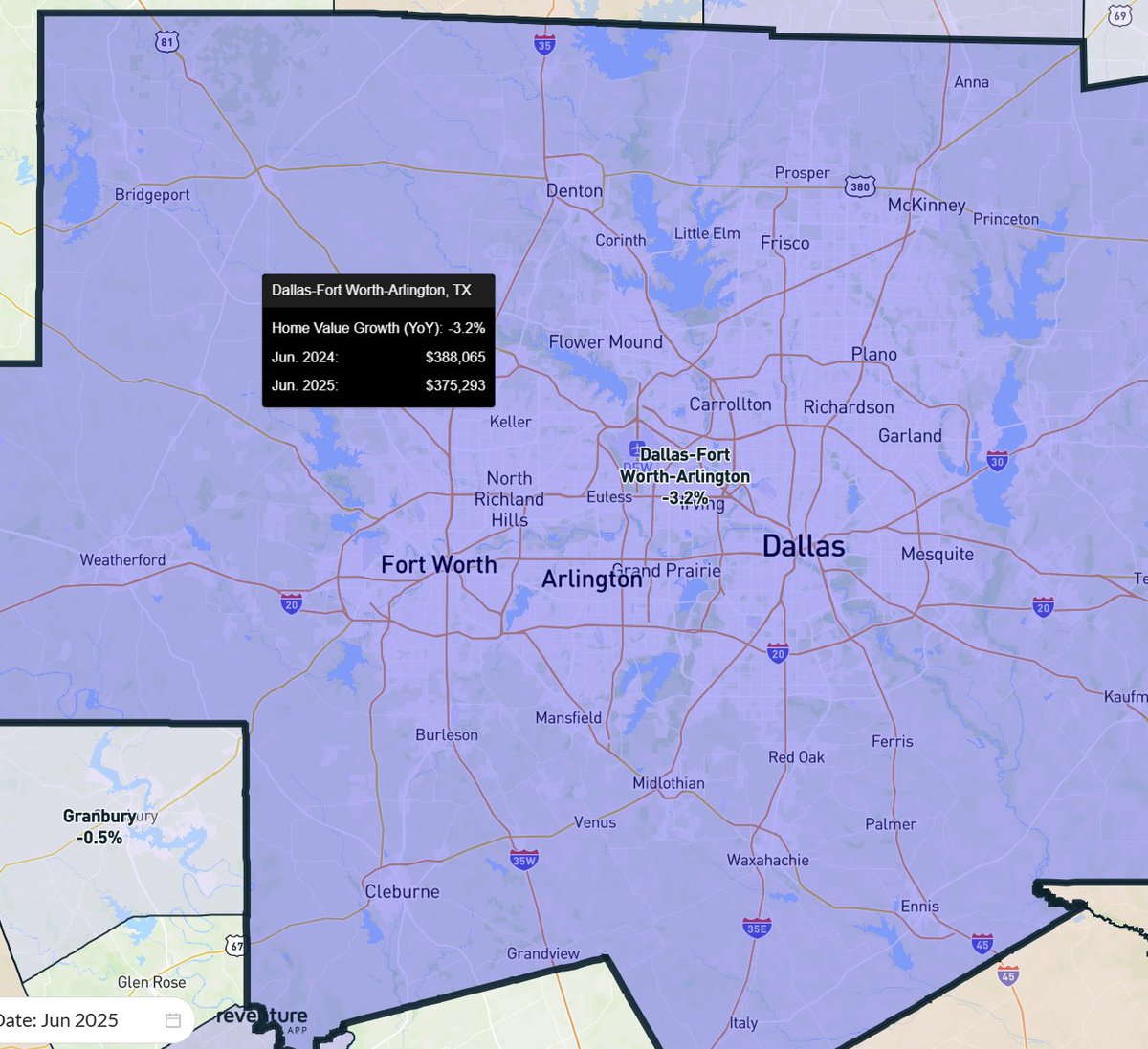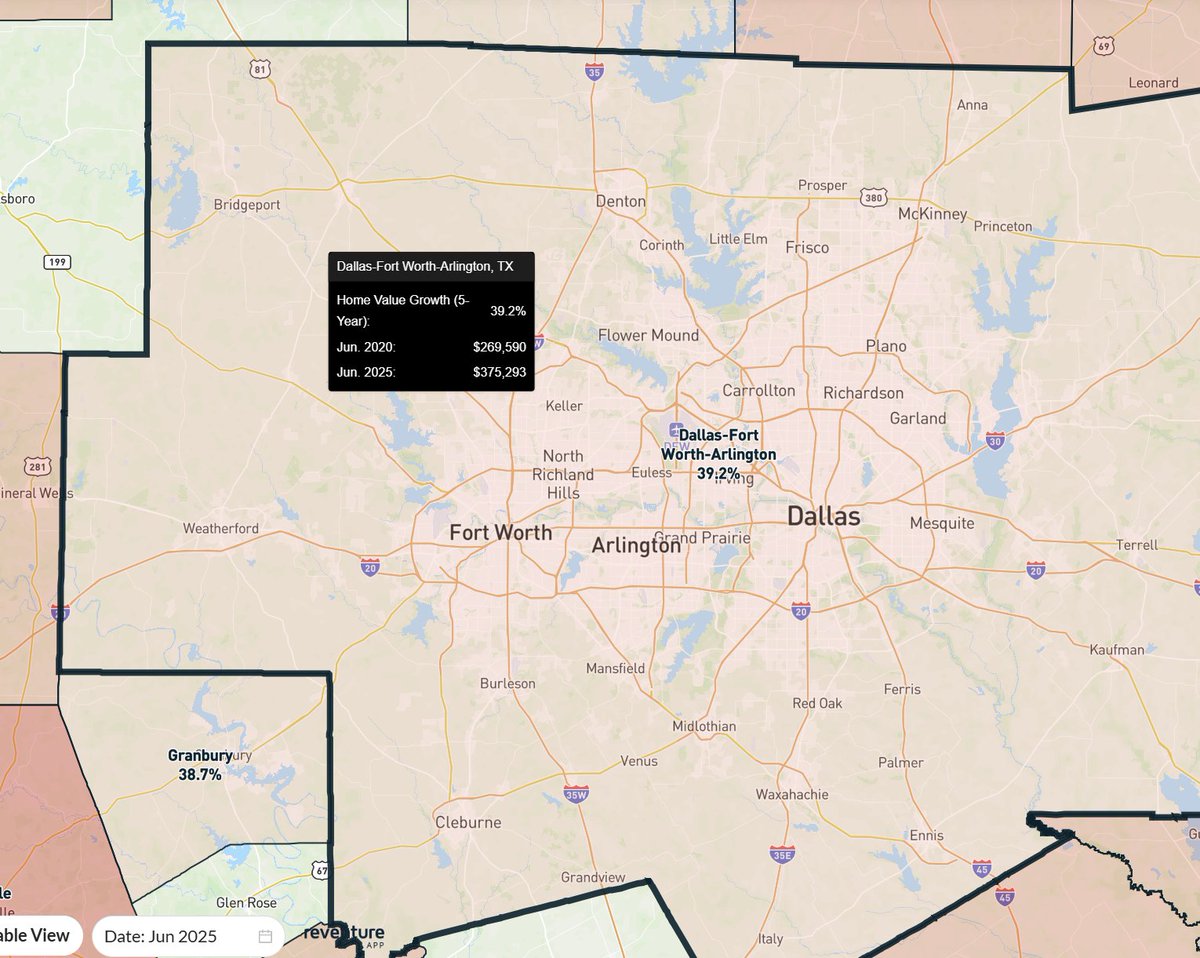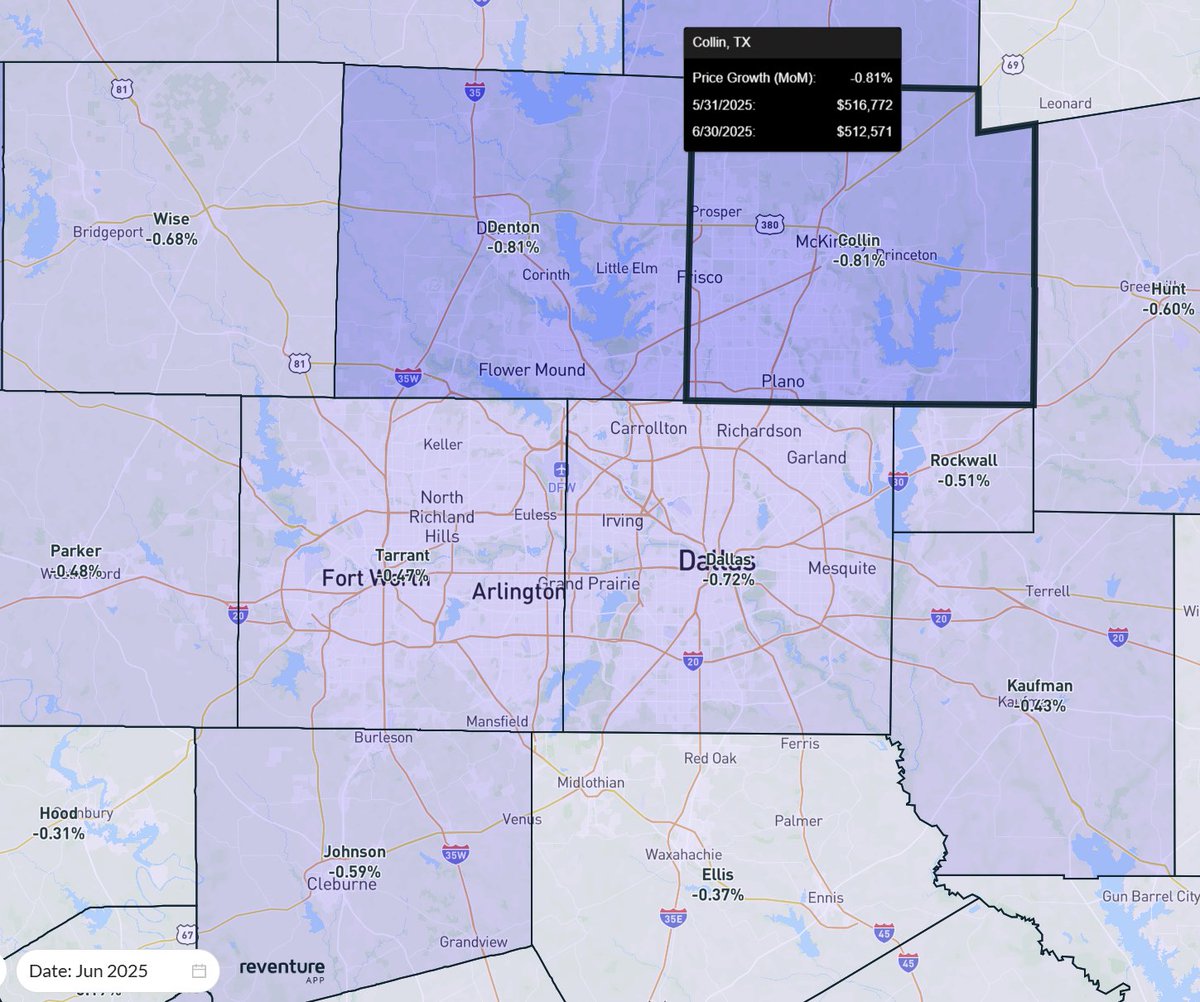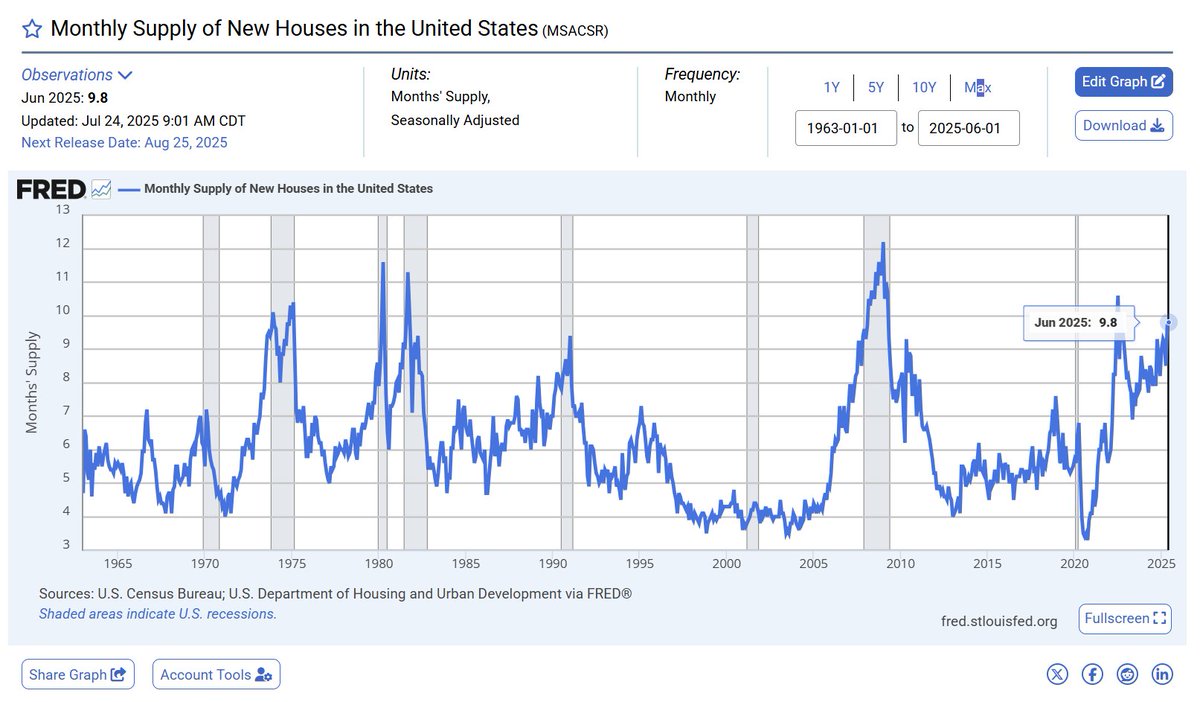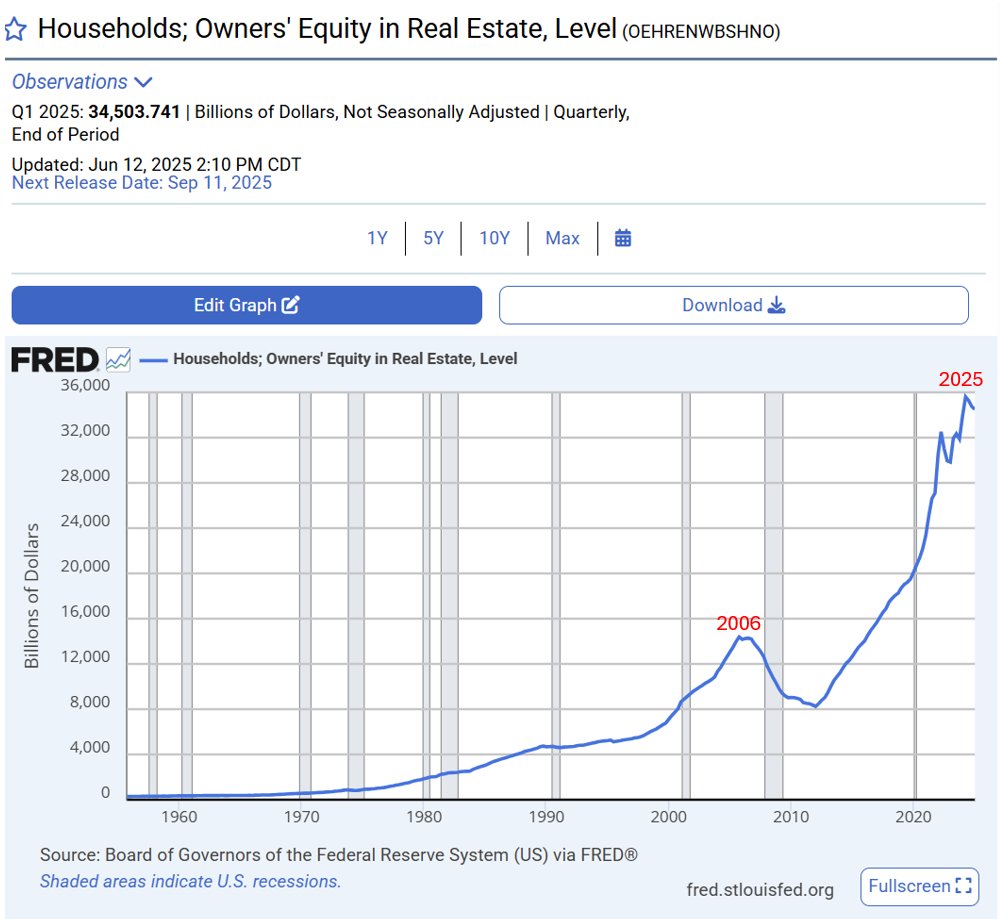Dallas housing supply is through the roof.
Active listings measured almost 32,000 in July 2025.
The average for July going back to 2017 is only 20,000.
60% more inventory than normal.
Active listings measured almost 32,000 in July 2025.
The average for July going back to 2017 is only 20,000.
60% more inventory than normal.

1) The inventory spike is happening pretty much everywhere in DFW.
All major counties are now above a 50% inventory surplus.
All major counties are now above a 50% inventory surplus.

2) Great news for DFW homebuyers.
There's the most selection the market has had since the tail end of the last downturn in 2011-12.
Meanwhile, values are now going down on a year-over-year basis.
There's the most selection the market has had since the tail end of the last downturn in 2011-12.
Meanwhile, values are now going down on a year-over-year basis.
6) We're forecasting a -7.8% drop in DFW over the next 12 months.
Market is still pretty overvalued at 22%. But improving.
Wouldn't be surprised if we see prices drop for a couple years before market bottoms out.
Market is still pretty overvalued at 22%. But improving.
Wouldn't be surprised if we see prices drop for a couple years before market bottoms out.
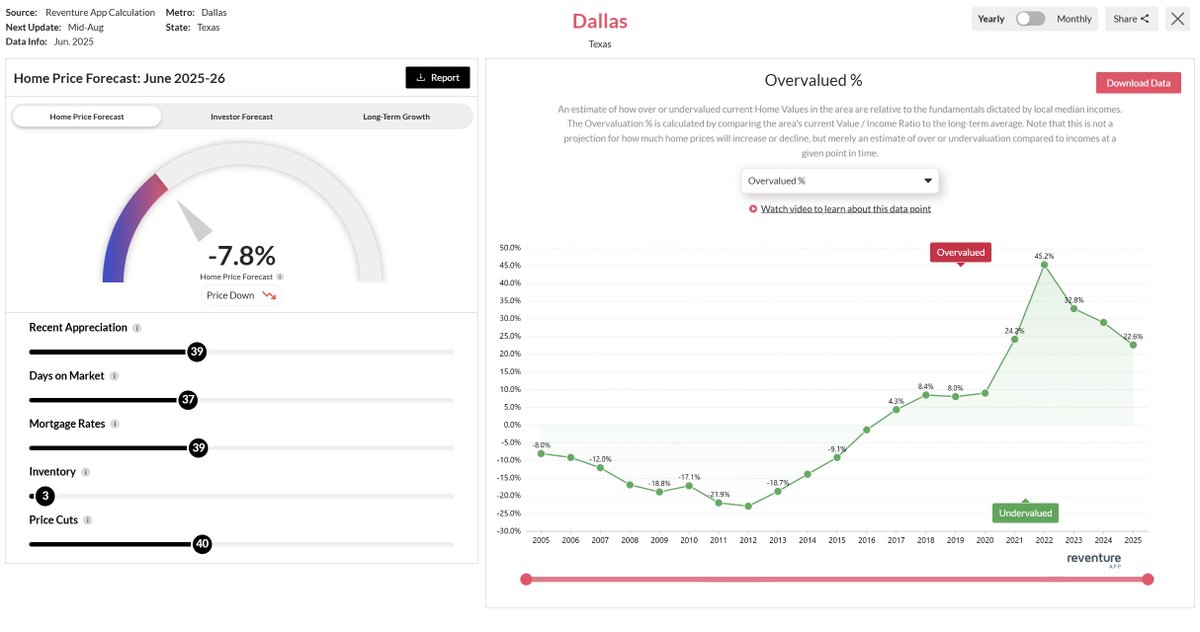
7) Access the ZIP code-specific forecasts at under a premium plan.
Currently the premium plan costs $39/month.
On August 18th, it will increase to $49/month.
Lock in your subscription now to get the lower pricing.reventure.app
Currently the premium plan costs $39/month.
On August 18th, it will increase to $49/month.
Lock in your subscription now to get the lower pricing.reventure.app
• • •
Missing some Tweet in this thread? You can try to
force a refresh

